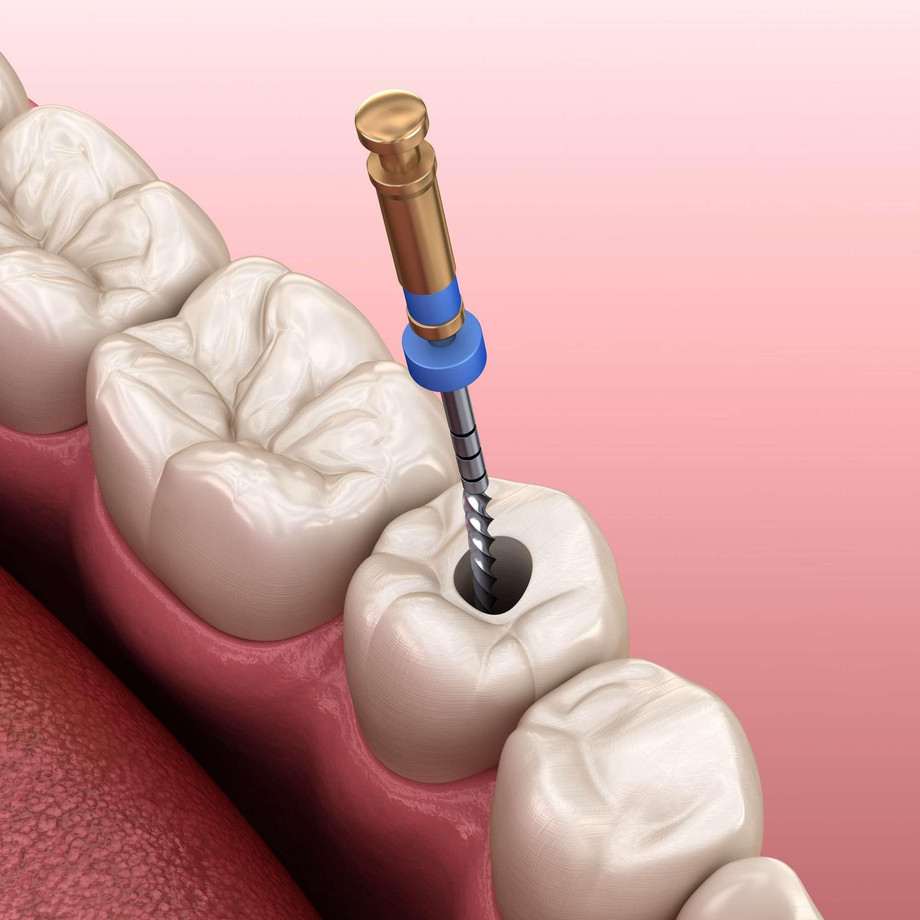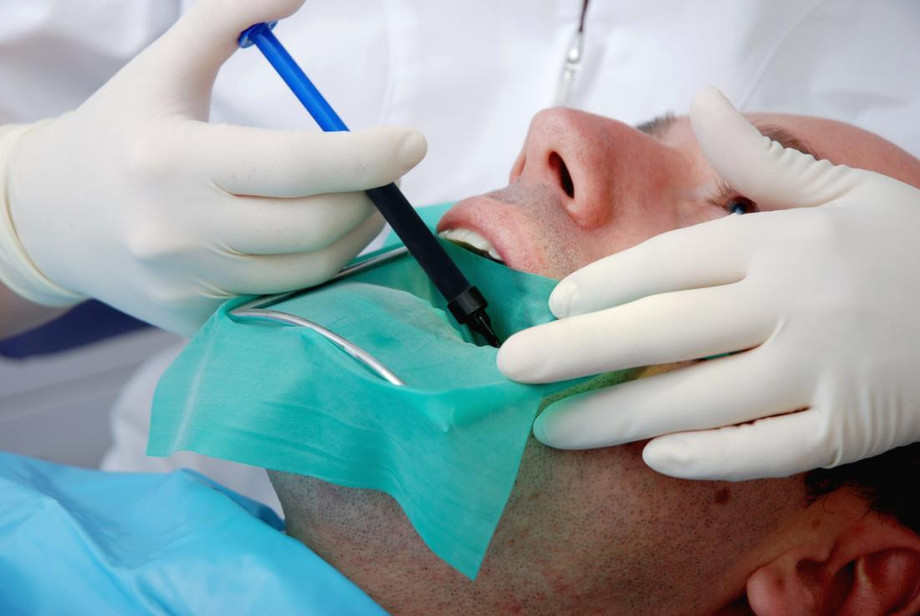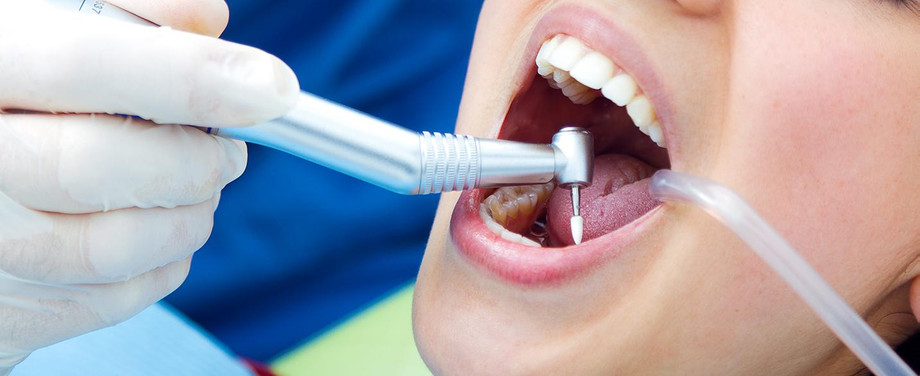richardsgovan's blog
Only the root canal treatment can save your teeth from extraction when your mouth bacteria penetrates your tooth and your pulp gets infected. An endodontist can prevent your tooth from infection and extraction by removing and cleaning your tooth's blood vessels and canals. While the tooth no longer contains living pulp tissue, Emergency Dental Services can save your tooth by a periodontal ligament and ensures proper functioning.
While root canals may last for a lifetime, there are some circumstances where you need re-treatment of your teeth. Here are some factors to consider that may influence root canal lifespan.
Root Canal Treatment Success RateAccording to reliable studies, researchers have found that Root Canal Dentist Near Me has a very high success rate compared to other restorative processes. Only molar treatment has a significantly higher rate than root canal treatment.
This research is also beneficial for patients in understanding how root canal treatment last and why the process is worth considering. Also, it's to know how some specific circumstances can affect your treatment's longevity and durability.
Factors Affecting Lifespan of Root Canals TreatmentIn which condition root canal has retreated after a few years? What steps should patients take to increase their durability and longevity? Here are some factors you can consider;
Timing of TreatmentA timely dental treatment provides better results than untreated or delayed ones. Your complications worsen significantly if your tooth's condition worsens and spreads to your jaw or other parts of your body.
Timing and Quality of RestorationYou'll need a permanent dental filling or crown to prevent your tooth from infection with the help of root canal treatment. The quality of restoration and filling material is critical. The early you visitDentist Houston Tx for a root canal treatment, the better. If you wait longer for your restoration procedure, your tooth is at high risk of severe infections.

Endodontist care for your front teeth is less complex since it has one root canal treatment. Furthermore, your front teeth cut and bite instead of grinding, and they need less force than your back teeths. If two or three teeth have a root canal, they are more complicated to treat and sustain more bite force while eating. This makes your mouth mechanism more vulnerable to problems that cause root canals that may be damaged by fracture.
Patient AgeAs time goes our teeth become brittle and more susceptible to breakage. This also affects how long your tooth canal will last; when it comes to restoring your molar teeths, a dental crown will help to protect your teeth from stress, so Emergency Dentistry Houston prefers dental filling in some circumstances.
Schedule a ConsultationIf you need a root canal treatment, you should contact your Root Canal Dentist and schedule an appointment for a consultation at Emergency Dental Clinic Near Me.
Article Source : https://www.ihealthytips.com/how-long-does-a-root-canal-last/
Preventive dental care is one of the most important preventions against oral diseases. It maintains your healthy smile for a long period. These actions include brushing your teeth with fluoride-containing toothpaste, flossing, and maintaining a healthy diet. It would help if you visit Top Dentist In Houston for regular oral exams and deep cleansing at least twice a year.
Dental insurance plans also prioritize preventive dental care because oral health is essential. Therefore, preventive dental services are often 100% covered, and you don’t need to pay anything. So you should visit your dentist for preventive dental care regularly.
Services or Treatments considered preventive dentistry?Preventive dentistry includes services and procedures provided by Cosmetic Dentistry Houston to reduce the likelihood of contracting oral health conditions that are expensive to treat and have unbearable pain experience. Here are following list of dental preventive that comes under dental insurance:
- Oral examination and full mouth check-ups
- X-rays and digital scanning of your teeth
- Professional Dentist Teeth Cleaning
- Fluoride treatments, especially for children
- Sealants are coverings or early prevention that your Local Cosmetic dentist apply to the top surfaces for permanent molars to save your teeth from decay inside the grooves that naturally occur in these teeth.
- Techniques for dental practices such as proper brushing, flossing your teeth at least two times a day, and use of other oral hygiene aids
- You need a proper nutritional diet and tobacco cessation counseling.
- Space maintainers are important for your children.
- In some circumstances, dentists use preventive resin restorations or decay-arresting medication to develop special shields for your children’s teeth to tackle the high risk of decay.
Preventive dentistry services is a procedure that allows oral health monitoring and promotes healthy habits that save your teeth and gums from infections or can catch early signs of any infectious diseases.
Home preventive dental care to improve your oral healthYour primary objective should be the maintenance of your oral hygiene and habit at home, such as brushing and flossing your teeth at least twice a day. Some dentists may recommend brushing twice daily for at least two minutes daily.
You should avoid smoking or chewing tobacco and ask Dentist 77008 if you want to quit. Tobacco use is associated with higher rates of tooth decay, periodontal disease, oral cancer, and other adverse health effects. You should have a balanced diet, avoid sugary and sticky food, and drink plenty of water throughout the day.
What are the benefits of preventive dentistry?Your preventive dentistry can reduces the risk of the following conditions:
- Tooth decay and Losing teeth
- Gum diseases and infections such as gingivitis and periodontal disease
- Receding gums and Tooth sensitivity
- Abnormal tooth wear or cracked tooth
Poor oral health conditions may contribute to other severe health issues, like diabetes, heart disease, and many more.
ConclusionYou should teach your Children about oral health and habits from a young age so they can learn and encourage them to brush and floss after meals or at least two times a day. Also, you should visit Emergency Dental Treatment for a regular check-up.
Article Source : https://www.transitsblog.com/what-is-preventive-dental-care/
A root canal is a process that involves the removal of the soft center of the tooth and pulp. The pulp consists of nerves, blood vessels, and connective tissue that helps the tooth to grow. In most cases, a Root Canal Dentist or endodontist will perform a root canal under local anesthesia.
When is a root canal needed?
The dentist performs a root canal when the inner part of your tooth, called the pulp, is injured or becomes infected.
The crown of the tooth, the outermost part of the tooth, can remain if the pulp is dead. Removing injured or infected pulp from your tooth is the best way to preserve the tooth structure.
Common causes of damage to the pulp include
- Deep decay due to an untreated cavity
- Multiple dental procedures on the same tooth
- A chipped or crack a tooth
- An injury to the tooth can cause a cavity or crack and hence pulp is damaged
The most common symptoms of the dead pulp include pain in your tooth, swelling, and the sensation of hot and cold in your gums. Your dentist will examine the tooth and take X-rays to confirm the problem. Your dentist may refer you to an endodontist for theRoot Canal Houston if needed.
How is a root canal performed?
Step 1: Anesthetic
The Root Canal Dentist Near Me will inject a small amount of numbing medication into your gum near the affected tooth. Once it has taken effect, you may feel a sharp burning sensation, but this will pass quickly. You will remain awake during the procedure, but the anesthetic will keep you away from any feeling or pain.
Step 2: Removing the pulp
When your tooth is numb, Your dentist will make a small opening in the top of your tooth.
Once the damaged pulp is exposed, the dentist carefully starts removing it using special tools called files. They will be particularly careful to clean out all the canals and nerve tissues in your tooth.
Step 3: Antibiotics
Once the pulp is out, the dentist may coat the area with a topical antibiotic to ensure that the infection is removed and to prevent reinfection. Once the canals are cleaned and infection-free, the dentist will fill the tooth with a sealer paste and gutta-percha. They will also prescribe you antibiotics.
Step 4: Temporary filling
In the end, the dentist fills the small opening in the top of your tooth with a soft and temporary material. The sealant helps to prevent the canals from saliva and other bacterial damage.
Follow-up after your root canal
Your tooth and gums may feel some soreness while the numbing medication wears off your gums and sometimes swollen up.
Most dentists prescribe acetaminophen(Tylenol) or ibuprofen, to treat these types of post-treatment symptoms. You can visit a root canal specialist near me if the pain becomes extreme or lasts more than a few days.
You can resume your daily normal activities the day after the procedure. Avoid eating with the damaged tooth until it’s permanently filled or the dentist may apply a crown over it.
Article Source : https://www.articleslurp.com/what-is-a-root-canal/
Dental hygiene can fight both bad breath and prevent gums disease. So it is essential to brush and floss regularly and visit a dentist twice a year for a routine check-up.
Dental Deep Cleaningis a smart way to keep your teeth clean and hygienic. In addition, this restorative procedure may avoid tooth loss and other expensive treatments. It is different from a regular one because this dentist cleans above the teeth and below the gumline. The advantages of this treatment are assured and visible, and you can feel them immediately after the treatment.
The advantages of deep dental cleaning
- Dental cleaning, which Prevents gum diseases, is also known as “Peridontal Maintainance Therapy.” Dental cleaning is a method of removing plaque and preventing gums from infections.
- Treatment of periodontal infections not only prevents the disease but also treats minor gum problems or the removal of tartar from the gumline.
- Prevention of tooth decay
Your dentist will take proper measures to remove plaque and tartar from above and below the gumline. If tartar and plaque remain below the gumline, it could cause tooth decay. So, we eliminate all this by getting a regular deep cleaning treatment.
No bad breath: Bad breath is not because you ate garlic-like food. But, It is a periodontal disease; with this treatment, you can get rid of it! It’s time to say goodbye to the bad breath problem and has good breath.
Protects tooth root: What You can expect from this treatment to ensure cleaning plaque and tartar below the gum line? It will be enough to protect roots and gums.
It has some disadvantages too. We are so glad that these limitations are temporary and have solutions for them. Let’s have a look at some of the drawbacks:
Disadvantages Of Deep Cleaning Teeth:
- It might cause you nerve damage while pulling the gum, and it is not an easy job. If your dentist is not experienced and authentic, you might be at risk of severe nerve damage. Therefore, It is always advisable to choose a dentist who is an expert in dental cleaning near me.
- Reattachment of gums to your tooth is not guaranteed, but it is an undeniable risk. So, you can consult a dentist, Teeth Cleaning Near Me, to ensure you get the best out of your treatment.
- Unbearable pain and sensitivity in gums are very typical risks. This dental risk can last for five to eight days. But medication can help you to treat the pain and sensitivity.
Dental health is the need of the hour! To sustain our general health, we should be watchful of certain health conditions especially need to take time to maintain oral health. You can visit the dentist at least twice a year for regular check-ups and brush twice daily, and doing so will reduce the risk of developing other diseases.
Article Source : https://www.techsmarttips.com/what-are-the-main-advantages-and-disadvantages-of-teeth-cleaning-before-and-after/







